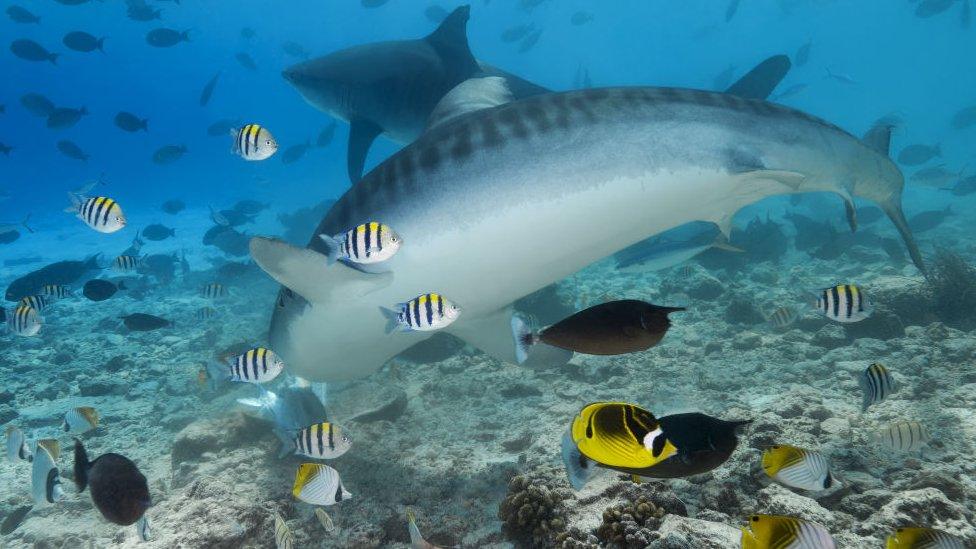Ocean wilderness needed to protect underwater world
- Published
- comments

A wildlife charity is calling for more marine wilderness areas to protect bigger fish that need space, including many species of sharks and large fish like groupers, jacks, and snappers.
A new study of the global state of marine coral reef wilderness by the Wildlife Conservation Society (WCS) and university collaborators has found that remote ocean wilderness areas are sustaining fish populations much better than some of the world's best marine reserves.
Findings from the study show that remote reefs shelter many important and threatened species that require large spaces, like sharks, groupers, jacks, and snappers.
Marine biologists examined coral reefs located over four hours from people and nine hours from urban areas.
They found that fish stocks in those remote wilderness areas was about one third higher than the numbers found in even the best-managed, oldest, and largest marine reserves that were located nearer to people.
Coral reefs like these, which make an important marine habitat, are under threat in many places around the world
A recent initiative by the United Nations, called 30x30, seeks to protect at least 30 percent of the land and sea by 2030.
It says that as little as two percent of coral reefs are being fully protected in marine reserves.
"This study confirmed that wilderness areas protect fish far better than even the most sustainable fisheries and reserves," said lead author Dr Tim McClanahan, Senior Scientist for the WCS.
The charity calls for the last remaining areas of remote ocean wilderness to be given special status and protection.
Alan Friedlander of Pristine Seas said: "Observing and surveying fishes for many years has made it clear to me that many, and particularly big fishes, require lots of space to survive and thrive.
"This collaboration and analyses with my colleagues have made clear this need for open marine wilderness."
- Published13 June
- Published8 June 2021
- Published28 January 2021
